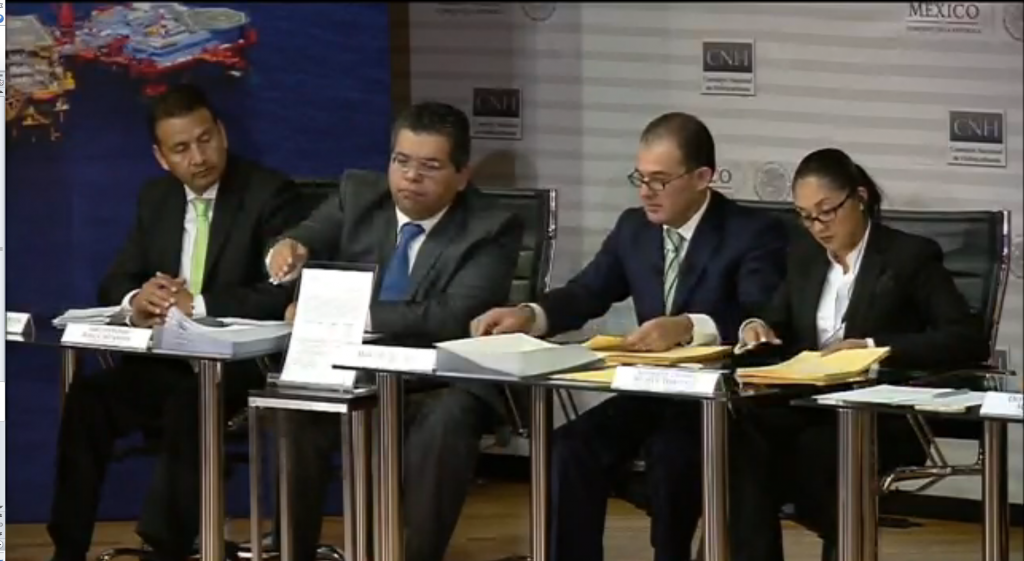
Mexico is willing to work with OPEC if the group tries to stabilize crude markets amid a global supply glut and slide in prices, Iran’s Oil Minister Bijan Namdar Zanganeh said after talks with Mexico’s labor secretary.
Mexico is the third-largest producer in the Western Hemisphere, according to BP Plc data. The Latin American nation isn’t a member of the Organization of Petroleum Exporting Countries, though it has cooperated with OPEC before by cutting output in efforts to buttress prices. The group supplies about 40 percent of the world’s oil.
“They expressed readiness to cooperate with OPEC should OPEC decide to enter market management,” Zanganeh said Tuesday after talks in the Iranian capital with Alfonso Navarrete Prida, according to state TV. Zanganeh didn’t elaborate on possible steps the producer group might take to manage the market.
Brent crude, a global benchmark, has dropped more than 50 percent in the last year and was at $48.73 a barrel in London at 2:12 p.m. local time. Venezuelan President Nicolas Maduro proposed that OPEC’s 12 members hold an extraordinary meeting to halt the slide in prices and invite non-OPEC producers such as Russia to participate. Russia won’t work with the group to reduce global supplies even after prices dropped to their lowest since 2009, the Financial Times reported on Monday, citing OAO Rosneft Chief Executive Officer Igor Sechin.
Mexican Role
In 1998, Mexico and OPEC members Venezuela and Saudi Arabia organized an output cut by 17 producing countries, including Norway and Russia. Mexico, which remains the third-largest supplier of crude to the U.S., reduced exports by 200,000 barrels a day and played a key role in persuading participants to stick to the cuts to help lift prices that dropped as low as $10.72 a barrel. OPEC and Mexico began easing the cuts in 2000.
“Iran would welcome any measure meant to improve oil market conditions and exit from the current conditions,” Zanganeh said, according to the official Islamic Republic News Agency. He didn’t elaborate on such possible measures.
